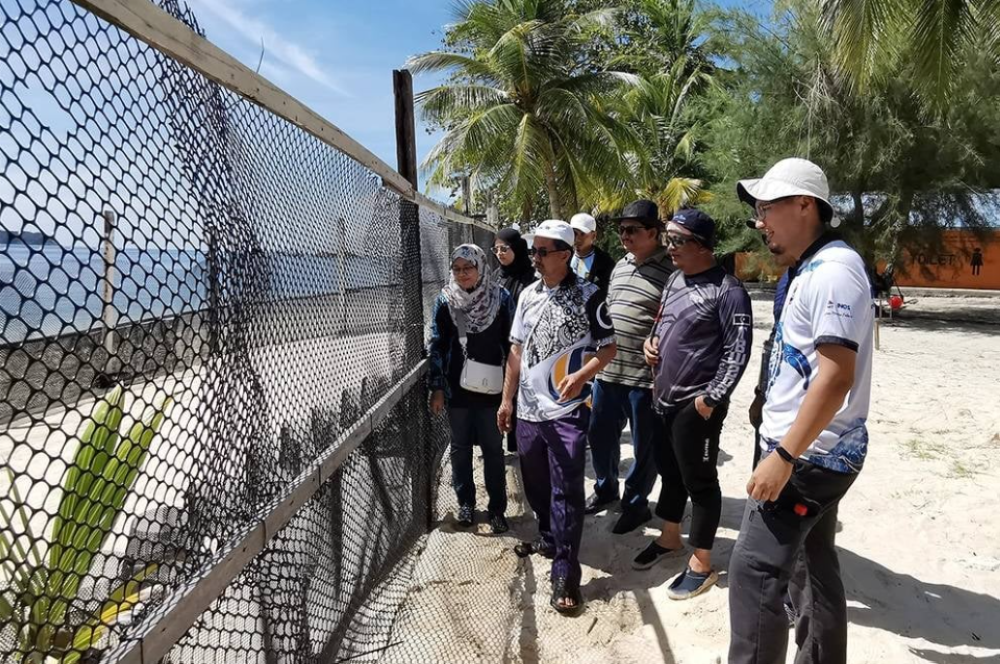Hot weather affects the number of male baby turtles

KUALA NERUS - The hot weather or El Nino phenomenon throughout the country is expected to affect the number of male baby turtles being hatched in most of the marine life conservation centers.
Universiti Malaysia Terengganu (UMT) External Research Laboratory, Institute of Oceanography and Environment (INOS), head Dr Mohd Uzair Rusli said, hot temperatures caused the turtles to produce a higher female brood than male brood.
"The incubation of turtle eggs to produce male and female is a bit unique, unlike humans. For humans, if the father donates an X (chromosome) then he will have a boy, if he has a Y (chromosome) he will have a girl.
"However, for turtles, gender determination is during the incubation process of the egg where the process takes place over a period of two months.
"During that period, which is the phase after the 40 days of incubation, we need to make sure the temperature is not too high because it will then produce females only," he told reporters when he visited the Sea Park Center in Pulau Redang.
Also present were Terengganu State Economic Planning Unit (UPEN) Director Datuk Tun Ahmad Faisal Tun Abdul Razak and Terengganu State Tourism Director Fadli Yusof Zakaria.
Mohd Uzair said, various initiatives are carried out to ensure that the hatched turtle eggs produce males, including placing the incubation area in the shade.
"The El Nino phenomenon has an impact on the production of male turtle parents, that's why we need to make sure that the methods used in the hatchery, especially the process of transferring turtle eggs in the hatchery, need to be incubated at the right depth.
"Eggs incubated at a depth of less than 20 centimeters (cm) will be exposed to daily temperature changes. Turtle eggs are not like eggs from the chicken or bird species, they require a stable incubation temperature.
"In addition to shade, we also need to ensure that all the eggs transferred to the hatchery are incubated with the right method. For example, there are cases where the nests are not dug deep enough and this ends up affecting the incubation process," he explained.
He said, so far the production of male turtles in most conservation centers is almost non-existent or at zero percent.
"Based on the results of our study in 2021, we almost did not succeed in producing any male turtles if the turtle eggs were incubated in open areas.
"That's why the challenge of doing this scientific effort requires support because the definition of success for the turtle conservation process varies. Success is when these turtles come back here to lay their eggs.
"Even if we produce almost 1,000 baby turtles from one mother turtle, it can actually make only one mother turtle return to Terengganu after a period of 20 years," he said.
He further explained the effects of the El Nino phenomenon cannot be seen in a short period of time, but in the next two or three years.
"That's why every effort and mitigation that we do needs to be based on accurate scientific findings to ensure that we do something that bears fruit and not just in vain.
"Conservation officers in the field also need to be sure that they are sufficiently trained and we can't just be comfortable with the report of the number of eggs incubated.
"Actually we need to carry out regular checks in all conservation centers to ensure the quality of the incubation process ," he said.













